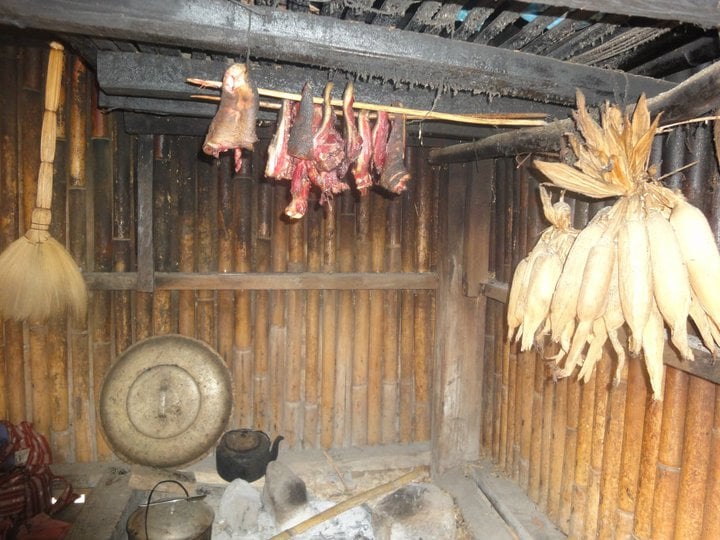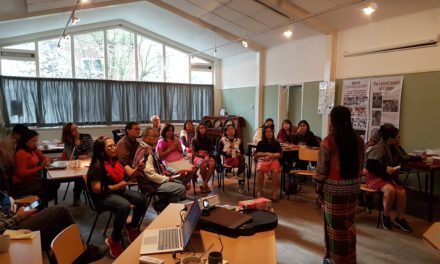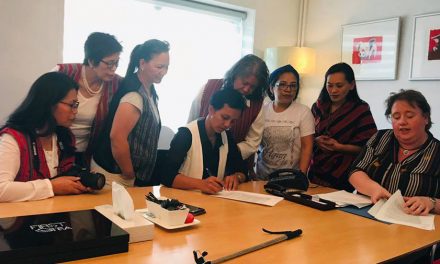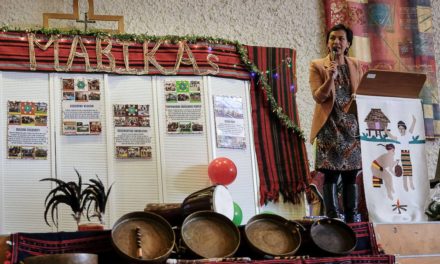On January 30, 2021, MABIKAs Foundation-The Netherlands kicked off with its preparation for a long-term educational project that aims to meet two of the six goals of the Foundation. One of these goals is wisdom acquisition and the other goal pertains to knowledge documentation of our indigenous culture and identity.
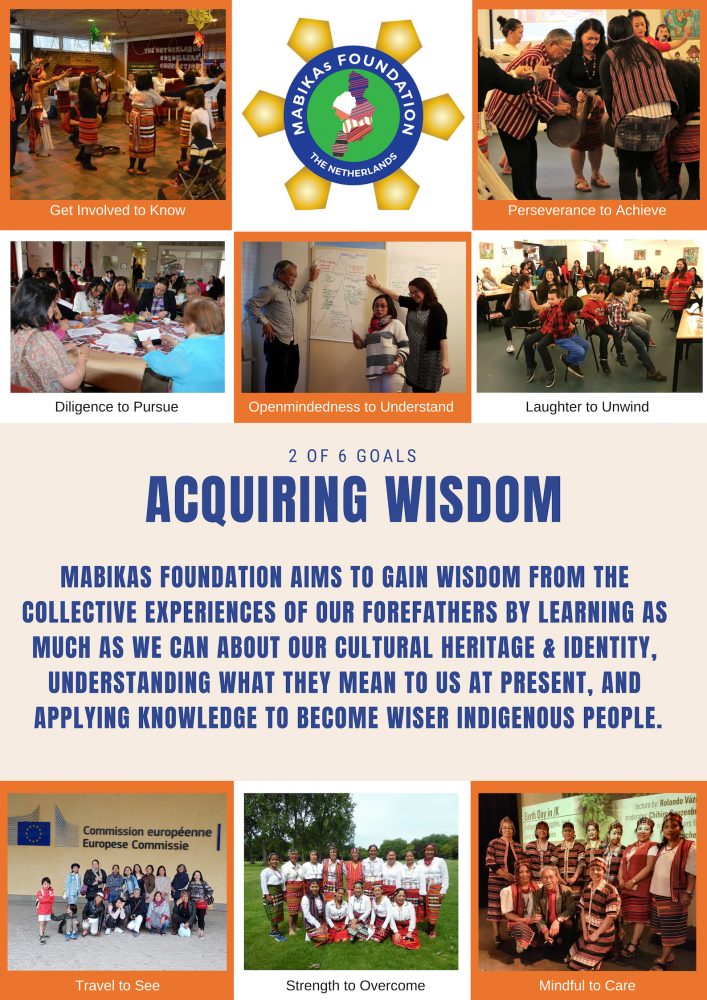
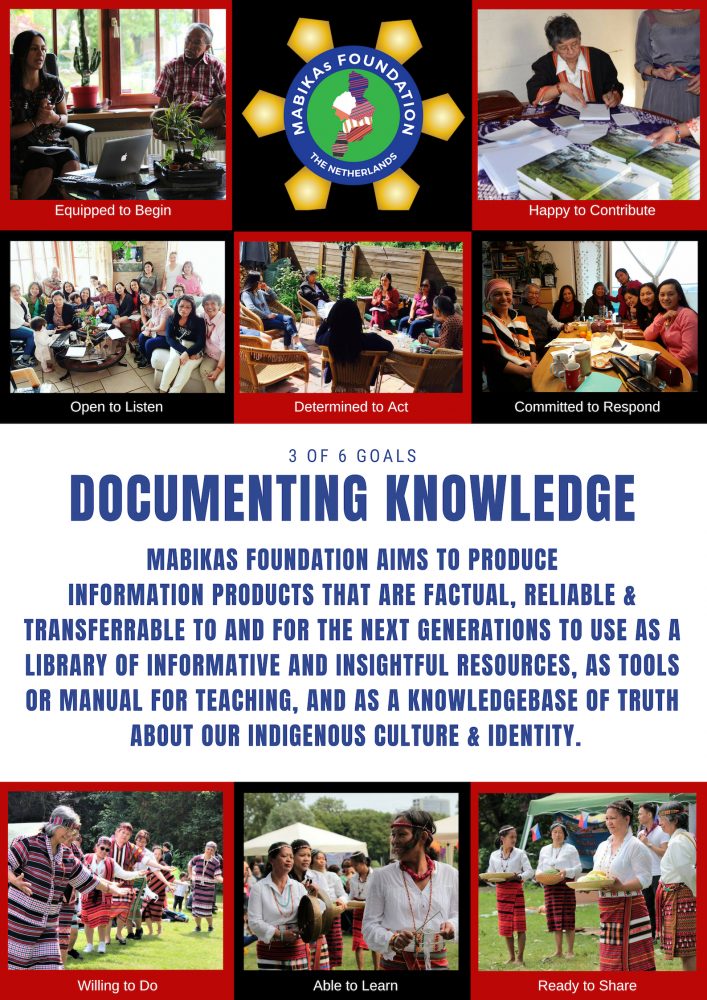
These goals and the said educational project are definitely for a long term, and might appear too grand to achieve but as the proverb say, “From small beginnings come great things.” Hence, the team started with the most doable and practical step that we could think of despite limited resources—and that is, through storytelling and sharing under the MABIKAs banner of ‘Tungtungan ti Umili’!
“Tungtungan ti Umili” is a local term that is understood by all tribes and natives of the Philippine Cordillera region as an event when community members gather for talks, discussions, opinion sharing, consultations, and storytelling. For the MABIKAs version of it, the idea is to reminisce genuine memories of our younger years and share what’s left of those traditional ways, values and learnings that were taught to us by our Igorot forefathers and elders to remember and live by.
From the January kickoff, the team was also able to unravel the most likely flow of every session moving forward. The ‘Tungtungan ti Umili’ is a facilitated session of at most two hours, which is currently scheduled every second Saturday of the month from 20:30 to 22:30 until further notice. The participants will be guided throughout the session of storytelling and sharing, starting off with a short introduction, followed by a brief visual or audio-visual presentation (e.g. showing a photo or a short video) that depicts something about our indigenous roots. For instance, during the kickoff on January 30th, the team started off with below photo.
From this photo alone, memories of home, including childhood memories and how things were (and still are done) back in our respective home towns came about. Words that immediately came out were words such as ‘kini-ing’, ‘etag’, ‘inasin’, and ‘sal-lakong’. All these different words are local terms in our respective dialects that refer to one thing, which is smoked meat. The Igorot Cordillerans of the kankanaey ethnolinguistic group typically call it kini-ing, while others in the province of Benguet call it ‘etag.’ In Mountain Province, say for example in the municipality of Barlig, they call this smoked meat as ‘sal-lakong’, while in Bontoc, it’s called ‘inasin’.
Though all different local terms pertain to just one thing, which is smoked meat, it is interesting to note that there are still some differences as emphasized by the participants who came from different ethnolinguistic groups in the Philippine Cordillera region. For instance, though the terms ‘kini-ing’ and ‘etag’ are two different terms used in the province of Benguet to refer to the smoked meat, apparently there is still a difference. Among the few differences that transpired during the session were as follows: Kini-ing vs Etag: what’s the difference?
| Kini-ing | Etag |
| Typically only pig’s meat | The meat used can vary from pig’s meat to cow’s meat or carabao/buffallo’s meat |
| Less salty than etag | Saltier than kini-ing |
| Less odorous than etag | Very strong smell as compared with kini-ing |
| Meat preservation entails drying up or smoking it while hanged | Food processing entails the use of a lot of salt, rubbed all throughout the meat, also dried up till all fats melted, and hang in the air for as long as 3 months (till the appearance of maggots). Some hang it by the hearth, others preserve the salted meat in a dry gourd called luden by the Kankanaey or lutsen by the Bontoks. |
Apart from reflecting and sharing memories and/or stories that can be extracted from the presented photo or short video, Tungtungan ti Umili also aims to reflect on the Igorot values that have been passed to us by older generations and share ideas on how we could continuously strengthen these values, especially in relation to current issues, phenomena, or events affecting us on a daily basis. By reminiscing the past and reflecting on the present, we also hope that through the Tungtungan ti Umili platform, we would also be able to reflect on the social impact that we could bring as indigenous people to the community we live in.
Scheduled online sessions for Tungtungan ti Umili may begin and end at certain date and times, but this doesn’t mean the discussion stops. Just like many of you, MABIKAs Foundation- The Netherlands believes that acquiring wisdom and documenting knowledge is a long-term process that could even take a life time. Hence, we invite you to share any thoughts that you may have on the topics at hand. For instance, though January has passed, storytelling and sharing on the topic discussed during the online session re: indigenous ways of food preparation by the Igorot Cordillerans in the Phillipines remains open. Hence, we invite you to share your thoughts, share your story, or share anything that reminds you of when you ponder about the topic below…
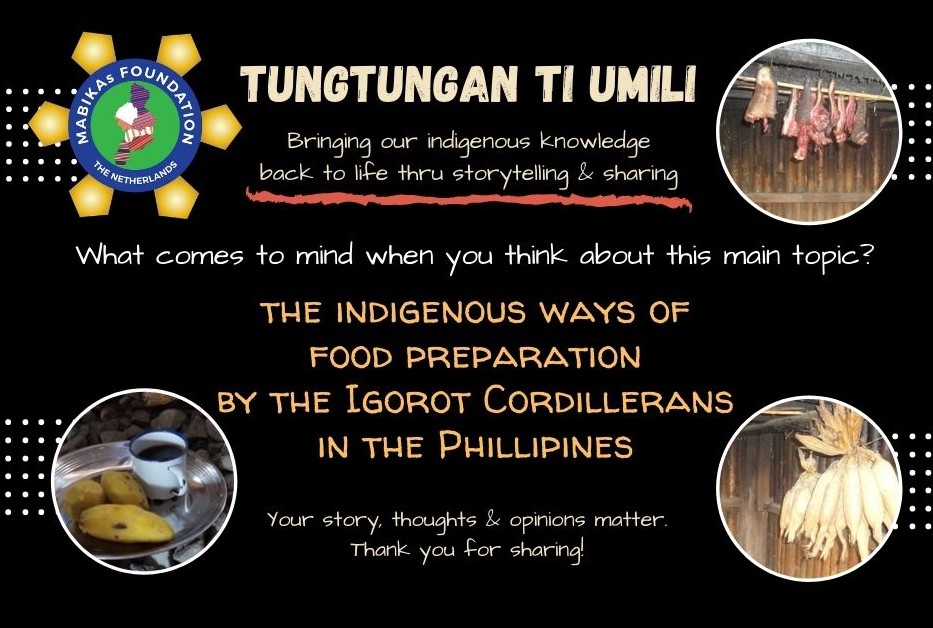
Please feel free to share either by commenting on this article or by writing your thoughts on the comment box below. Also feel free to add any relevant videos or links to materials that you think could better express what you wanted to share. Looking forward to hear from you! (Those who participated during the online meet are still welcome to share any additional thoughts and further reflections about the topics discussed.)
To anyone interested in joining our monthly online ‘Tungtungan ti Umili’ session, please send us an email at mabikasfoundation@gmail.com to receive further information and notification. The next session is on February 13, 2021 at 20:30-22:30 (CET) Amsterdam Time.
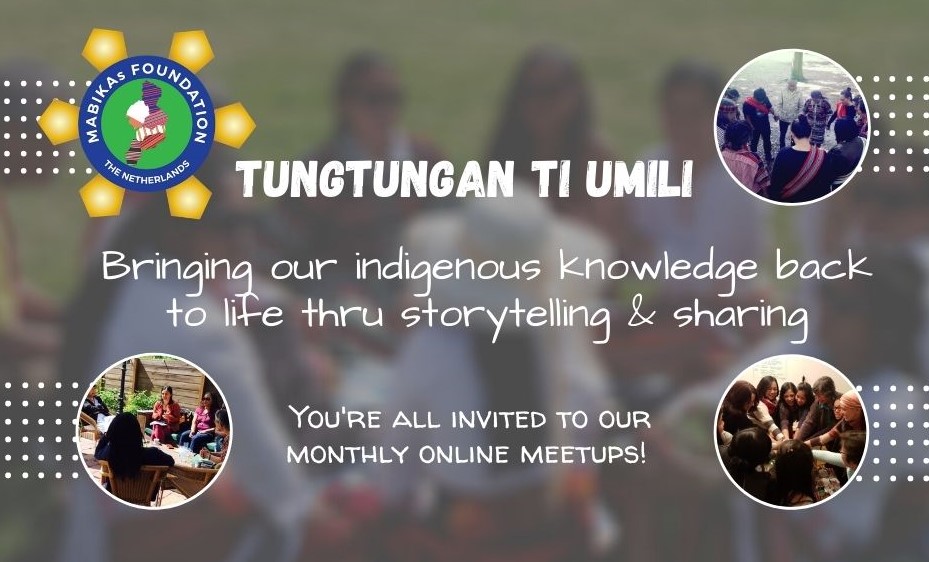
Special thanks to the following MABIKAs constituents who have contributed to this article: Renijune Abaya, Bender Batan, Yvonne Belen, Myra Colis, Tessie Gayao, Theresa Kitongan, Freda Polquiso, Cesar Taguba.
UPDATE: On February 13, 2021, MABIKAs Foundation changed the event name from ‘Tungtungan ti Umili’ to ‘Tungtungan ti MABIKAs’ in order to avoid confusion with the Baguio-based organization named ‘Tongtongan ti Umili’.
